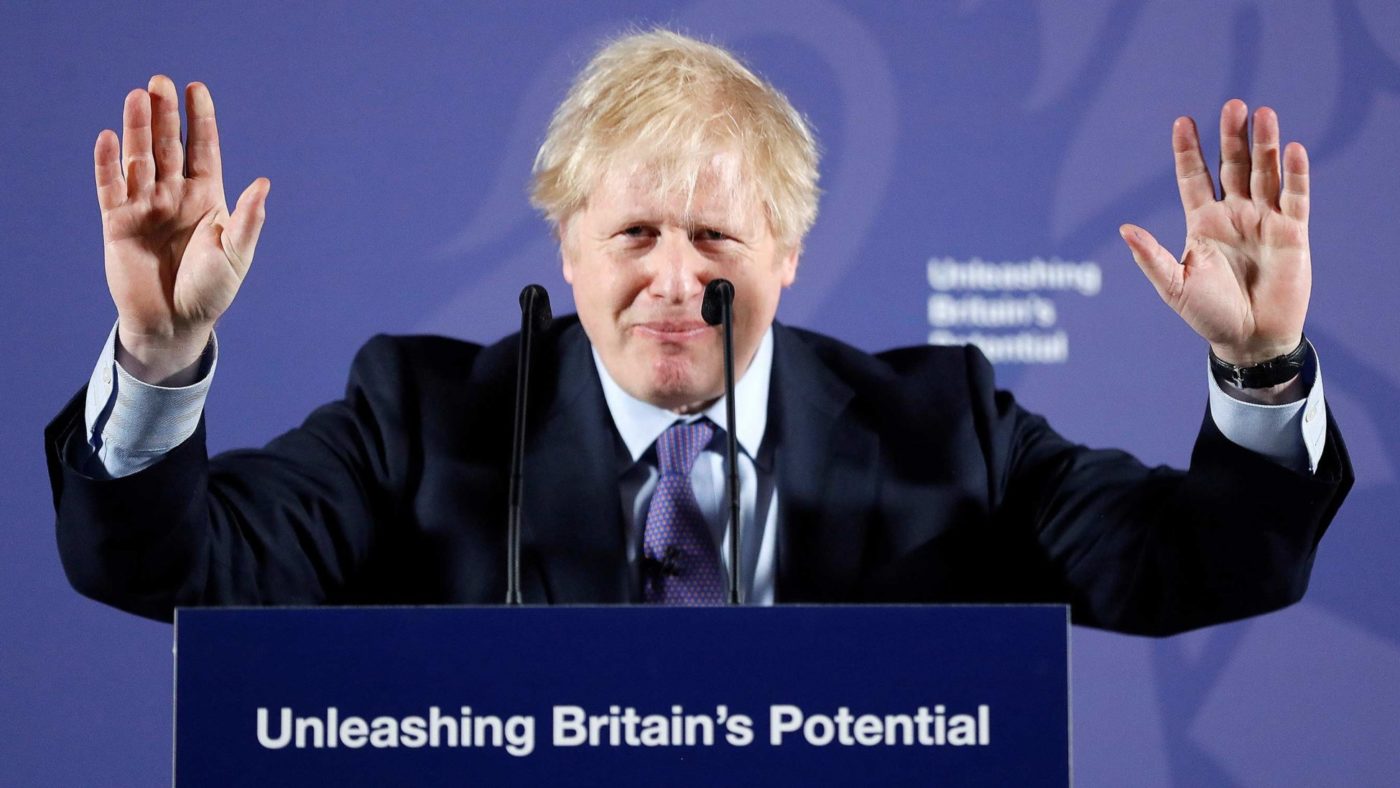“We are re-emerging after decades of hibernation as a campaigner for global free trade. And, frankly, it is not a moment too soon because the argument for this fundamental liberty is now not being made.”
For free trade enthusiasts Boris Johnson’s speech this week on Britain’s post-Brexit future was so much sweet music. Here was the return of Boris the economic liberal, a politician who had, if not hibernated, then certainly retreated a bit due to the exigencies of a Brexit-themed election campaign.
And, in a world of Trump-inspired trade wars and malicous mercantilists prowling the globe, it was refreshing to hear a senior politician make the case for the power of economic liberty with such unvarnished enthusiasm.
But what really pricked my ears was that phrase “fundamental liberty” to describe international commerce.
In a certain kind of leftwing lexicon the phrase ‘market fundamentalist’ is employed as a kind of argument-ending catch-all, ready to be aimed at anyone who wants to expand private enterprise and is sceptical about the way government impinges on pretty much every aspect of our lives.
Jeremy Corbyn, for instance, used to refer to “market fundamentalist throwbacks” in the Cabinet, apparently dead set on a No Deal Brexit to ensure the UK could embrace a “race to the bottom” (as much a figment of his imagination as the ‘selling Our NHS’ canard).
It’s a cunning linguistic sleight of hand, invoking a word usually reserved for murderous Mullahs to describe people who subscribe to the ideas of Adam Smith or Milton Friedman, lambasting as swivel-eyed those who are actually clear-sighted.
Meanwhile politicians who proclaim themselves proud socialists, as Rebecca Long-Bailey did this week, face no such opprobrium, even though their own beliefs could quite accurately be described as ‘state fundamentalism’.
If anything, we free marketeers should follow Mr Johnson’s lead and reclaim the ‘fundamentalist’ badge with pride. Because nothing is more fundamental to economic life, or even to basic human interaction, than the mutual, free exchange of goods and services.
And despite the quasi-religious terminology, to be a ‘fundamentalist’ for free trade is to be guided not by mere theory, but by what has demonstrably worked. This is perhaps the most, ahem, fundamental way in which economic liberalism differs from socialism. One is positive, building out from what people naturally do, the other prescriptive, trying to mould human society to a pre-determined set of axioms, no matter the lack of evidence for their effectiveness.
Likewise, we can make the case for free markets without resorting to Adam Smith or David Ricardo (peace be upon them). Simply look at the last 100 years of human history, which is peppered with examples of countries powering their way to prosperity through embracing freedom both in their domestic economies and in trade with other nations. Now try to think of a single example of a poor country embracing full-throttle socialism and seeing its living standards rocket.
To return to the current political scene, there is an awful lot of track to go down before we discover whether the PM’s faith in the awesome power of free trade supersedes the political imperative of getting a deal with the EU.
As Julian Jessop noted this week, the two sides are currently far apart – with British ministers thumbing their noses at the idea of ‘alignment’ with Brussels – but that doesn’t mean there isn’t room for manoeuvre. Politics is about compromise, and seeking absolute purity at the expense of getting things done is a fool’s errand.
Click here to subscribe to our daily briefing – the best pieces from CapX and across the web.
CapX depends on the generosity of its readers. If you value what we do, please consider making a donation.


